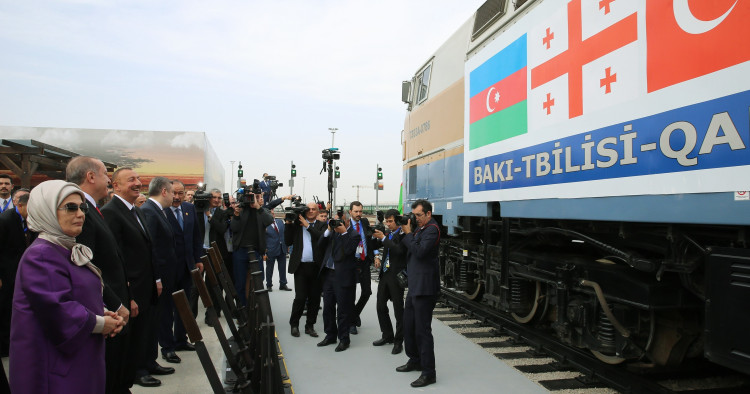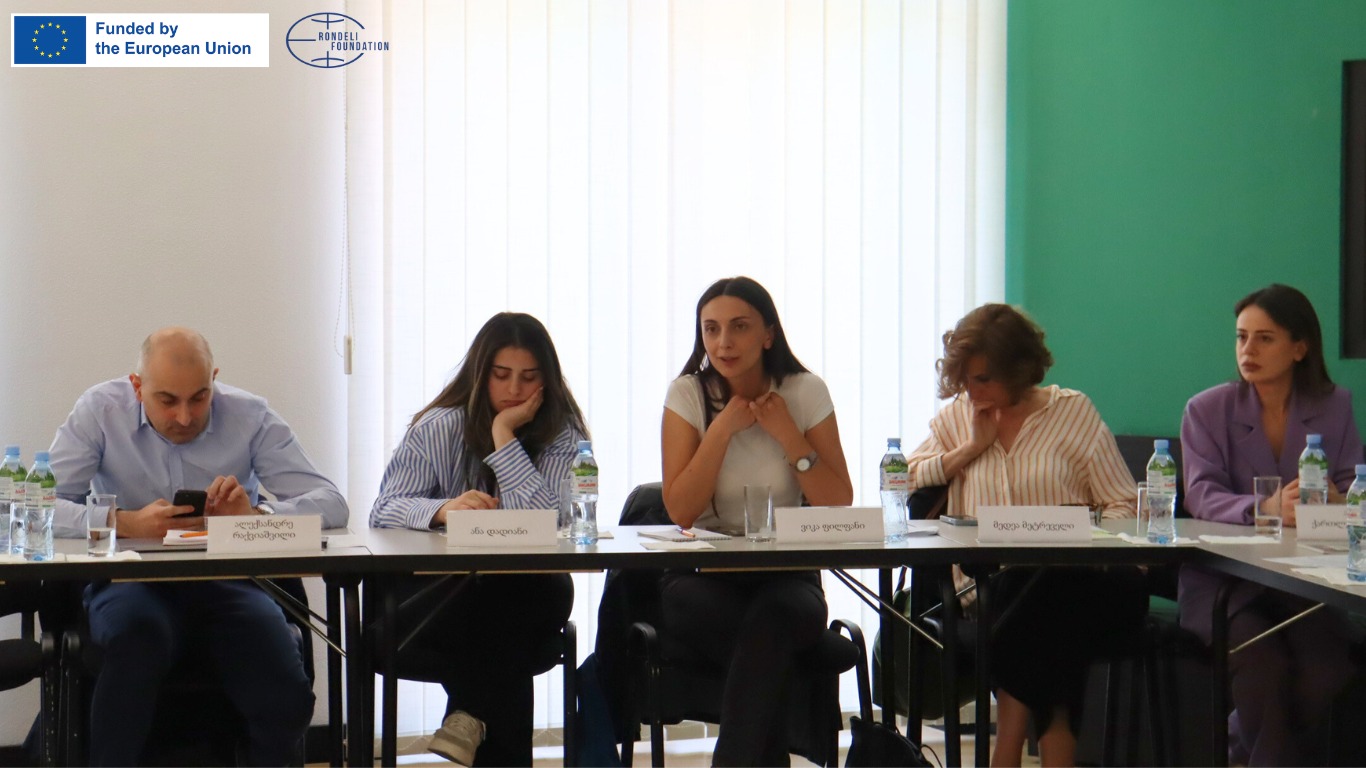As the summer heat is at its peak, and so is the information flow, let’s stay in the loop of the current events by following the reading recommendations shared by the Rondeli Foundation fellows and friends.
Here’s a collection of thought-provoking publications, podcasts and books that we have gathered for Foreign Policy and Security professionals, and anyone who is interested in global developments and trends.
Books:

The Four Ages of American Foreign Policy: Weak Power, Great Power, Superpower,Hyperpower
Author: Michael Mandelbaum
In The Four Ages of American Foreign Policy, Michael Mandelbaum offers a new framework for understanding the evolution of the foreign policy of the United States. He divides that evolution into four distinct periods, with each defined by the consistent increase in American power relative to other countries. His history of the four periods features engaging accounts of the major events and important personalities in the foreign policy of each era.
Continue reading

The Age Of Energy Insecurity
Author: JASON BORDOFF AND MEGHAN L. O’SULLIVAN
Such hopes, however, were based on an illusion. The transition to clean energy was bound to be chaotic in practice, producing new conflicts and risks in the short term. By the fall of 2021, amid an energy crisis in Europe, skyrocketing natural gas prices, and rising oil prices, even the most optimistic evangelist of the new energy order had realized that the transition would be rocky at best. Any remaining romanticism evaporated when Russia invaded Ukraine in February 2022. The war revealed not only the brutal character of Russian President Vladimir Putin’s regime and the dangers of an excessive energy dependence on aggressive autocracies but also the risks posed by a jagged, largely uncoordinated scramble to develop new energy sources and to wean the world old, entrenched ones.
Continue reading: The Age


Author: Geoff White
The jaw-dropping story behind North Korea’s dangerous cyber-criminals, the Lazarus Group, who hacked Hollywood and the world.
Meet the Lazarus Group, a shadowy cabal of hackers accused of working on behalf of the North Korean state.
Continue reading:Lazarus-Heist-Hollywood-Finance-Inside
Blogs:




Author: Edward H. Miller
The first full-scale biography of Robert Welch, who founded the John Birch Society and planted some of modern conservatism’s most insidious seeds.
Though you may not know his name, Robert Welch (1899-1985)—founder of the John Birch Society—is easily one of the most significant architects of our current political moment. In A Conspiratorial Life, the first full-scale biography of Welch, Edward H. Miller delves deep into the life of an overlooked figure whose ideas nevertheless reshaped the American right.
Continue reading:https://www.amazon.com/Conspiratorial-Life-Revolution
Blogs:

Iran gleefully eyes the protests in Israel, looking for weaknesses to exploit
Author: Jason M. Brodsky
As Israel grapples with fundamental questions of identity and societal fissures years in the making, its enemies have been gleefully watching. Weekly scenes of street protests and signs of deep societal division reinforce the narrative long advanced by Iran and its Axis of Resistance — comprising proxies and partners like Hezbollah, Hamas, and Palestinian Islamic Jihad — that the Jewish state is living on borrowed time.
Continue reading: https://mei.edu/publications/iran-gleefully-eyes-protests-israel-looking-weaknesses-exploit

Iran’s renewed Africa policy: Raisi’s ambition and the perception of Western decline
Author: Amin Naeni
Over the past two years, as the United States and the European Union have invested in the revival of the 2015 Iran nuclear deal, the Iranian leadership has opted to solidify its non-Western foreign policy approach. In line with this approach, President Ebrahim Raisi embarked on a three-country trip to Africa in mid-July, marking the first time an Iranian president has undertaken such a visit in over 11 years.
Continue reading: https://mei.edu/publications/irans-renewed-africa-policy-raisis-ambition-and-perception-western-decline

Realigning priorities: Egypt’s strategic shift toward Qatar, Turkey, and Iran
Author: Amr Salah Mohamed
During President Abdel-Fattah el-Sisi’s first term in office (2014-18), Egypt had strained relations with Turkey, Qatar, and Iran. However, this began to change during his second term, as Cairo made an incremental shift toward Ankara, Doha, and later Tehran. This shift coincided with changes in global and regional dynamics, stalemates in many of the Middle East’s conflict zones, and a detente between regional powers.
Continue reading: https://mei.edu/publications/realigning-priorities-egypts-strategic-shift-toward-qatar-turkey-and-iran

Diagnosing Iran’s emerging pivot toward Russia and China
Author: Mahmood Sariolghalam
“The world is not just Europe and America,” Iran’s foreign ministry spokesperson declared on April 10, 2023, implicitly echoing the views championed for years by the senior leadership of the Islamic Republic regarding the ostensible rise of China and Russia. Indeed, the moment when Iran shifted from a traditional balancing relationship between East and West to decisively embrace Russia and China occurred on May 8, 2018, when the Trump administration withdrew the United States from the 2015 Joint Comprehensive Plan of Action (JCPOA).
Continue reading: https://mei.edu/publications/diagnosing-irans-emerging-pivot-toward-russia-and-china

How India views China’s diplomacy in the Middle East
Author: Kabir Taneja
The recent Gulf tour by Iranian Foreign Minister Hossein Amir-Abdollahian, which included stops in the capitals of the United Arab Emirates, Oman, and Kuwait, came with an offer for a new regional forum that would bring together these Arab states and Tehran. If this plan were to succeed, it would potentially herald a new geopolitical paradigm, the effects of which will be felt far beyond the Middle East.
Continue reading: https://mei.edu/publications/how-india-views-chinas-diplomacy-middle-east

Mastering the growing crisis in the South Caucasus: A role for the West and Turkey
The South Caucasus’ regional order has undergone a profound and dynamic transformation in recent years. These monumental shifts have come as a result of, inter alia, the war in Karabakh, internal changes in Georgia, and, above all, Russia’s full-scale invasion of Ukraine. The ongoing Russo-Ukrainian war, in particular, has given fundamental importance to those unfolding transformations, which, in turn, have raised critical questions about the continued sustainability of three decades of Western political and economic investment in the region, the stability of the Black Sea region, the future of the other Caucasus-linked neighboring post-Soviet areas (especially Russia and Central Asia), and the nature of Turkey’s developing regional policies and their implications for the Middle East. But one thing is certain: There will be no return to the status quo ante bellum.
Continue reading: https://mei.edu/publications/mastering-growing-crisis-south-caucasus-role-west-and-turkey

Georgia the interconnector — but where’s Washington?
Russia’s February 2022 invasion of Ukraine prompted a rapid and potentially lasting shift in sourcing Europe’s natural gas. While the Russian role in European markets, energy mixes, and infrastructure continues to diminish, gas producers in the South Caucasus, Caspian basin, and beyond are moving in to fill the gap; and they are utilizing various new Black Sea transit corridors and initiatives to deliver their volumes. For the sake of safeguarding these transatlantic — and thus also American — security interests, it is becoming increasingly imperative that the United States better anchor itself economically, politically, and militarily in the eastern Black Sea region.
Continue reading: https://mei.edu/publications/georgia-interconnector-wheres-washington

Iran and the GCC connectivity agenda: Implication for Washington’s Iran policy
Iran is possibly the only country that the United Arab Emirates can call an “enemy.” The two maintain a dispute over three islands in the Gulf — Abu Musa and the Greater and Lesser Tunbs — that Iran “seized” on Nov. 30, 1971, but the UAE claims as its territory. Yet there is another more significant and multilayered side to the UAE-Iran relationship, one that concepts such as political pragmatism or hedging alone cannot explain.
Continue reading: https://mei.edu/publications/iran-and-gcc-connectivity-agenda-implication-washingtons-iran-policy
 Azerbaijan’s Hoseyniyun: The prospects and challenges of a Caucasus Hezbollah
Azerbaijan’s Hoseyniyun: The prospects and challenges of a Caucasus Hezbollah
The “Axis of Resistance,” a network of non-state actors aligned with Iran, has emerged as a significant force in the Middle East in the last two decades. This coalition includes high-profile groups such as Hezbollah in Lebanon, Hamas in Gaza, and various Shi’a groups in Iraq and Syria. Iran has successfully recruited from Shi’a populations in Afghanistan and Pakistan over the past decade, significantly expanding its reach through the network. Despite the attention given to the more well-known members of the Axis of Resistance, the Azerbaijani group Hoseyniyun, or Hüseynçilər in the Azerbaijani language, which also operates within the network, remains relatively unknown.
Continue reading: https://mei.edu/publications/azerbaijans-hoseyniyun-prospects-and-challenges-caucasus-hezbollah

Managing US-China relations in the Middle East among common and conflicting interests
Author: Paul Salem
The Biden administration has been trying to diplomatically reengage with China, although so far with little response from Beijing. Any broad reengagement would necessarily include reengagement in the Middle East and North Africa. Both sides have a long list of common interests in the Middle East; the areas where their interests diverge relate mainly to suspicions of the other side’s long-term strategy and global ambitions. How can Washington and Beijing build on common interests in the region while addressing their long-term concerns, reducing some of them and accommodating robust competition or even sharp adversarial attitudes in other areas?
Continue reading:

Videos:





